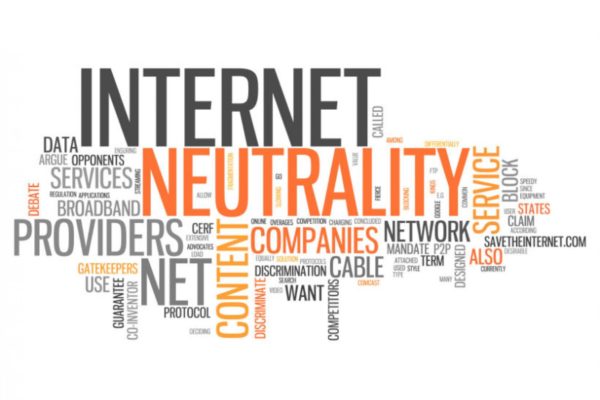Imagine these scenarios: You search for prices of internet service providers (ISPs) in your area, and your ISP denies access to those prices. Or, you want to watch YouTube or Netflix videos, but your ISP, which has its own video services, may charge more or throttles the speed.
The scenarios are a possibility if the chairman of the Federal Communications Commission (FCC), Ajit Pai, has his way to end the 2015 Obama-era regulation governing broadband internet as a public utility. The new Internet Freedom Act would allow ISPs to prioritize traffic and price services as long as they are transparent in their services and do not engage in anti-competitive activities. The hope is consumers will pick a level of service that best suits their needs.
But doing this would be in direct contrast to net neutrality in which ISPs must treat all traffic and consumer requests equally. There are fears of unintended consequences if net neutrality is removed. These fears include stifling consumer freedom, competition and innovation, increasing consumer cost and introducing censorship.
This fear is further compounded by the fact that in more than half of the U.S. and, in particular Texas, there is one or no broadband service provider. Thus, the transparency required with the Internet Freedom Act is meaningless if consumers have no choice and can be held hostage.
These fears aren’t irrational. Already, Netflix pays Comcast a fee so its traffic can get priority. There are instances where ISPs acknowledge in courts that they could potentially increase prices, throttle services, or deny access.
There is also concern about whether small and medium-size businesses that lack the resources can compete on equal footing. With internet commerce, cloud computing and online education becoming part of everyone’s daily life, competition can be stifled. Large players who can “pay to play” will get bigger, and ISPs that provide the access can control the consumer. All of these can lead to higher costs for consumers.
But, ISPs that are lobbying aggressively for the end of net neutrality have favorable arguments too. They invest billions of dollars each year on capital expenditures. AT&T and Verizon are expected to spend $22 billion and $17 billion, respectively.
They take enormous risks and expect rewards. In contrast, shareholders of Netflix, Facebook, Amazon and Alphabet (parent company of Google) who rely on ISPs have seen gains of 1,400 percent, 900 percent, 400 percent, and 200 percent, respectively, during the past five years, while generating more than 50 percent of the internet traffic. Service providers, in comparison, have seen no significant appreciation of stock price during the same period.
Very few of the companies that use the internet for their business come close to the level of capital expenditures of AT&T and Verizon. At the same time, companies that rely on ISPs compete aggressively for video and voice services. In fact, all of the ISPs are losing video customers that they serve. Revenue from traditional voice services has declined dramatically due to internet-based services and mobile technologies.
In the absence of significant rewards for investments, growth and shareholder value, it is natural for these ISPs to want regulations that favor them much like others lobby for favorable regulations.
If net neutrality is repealed, it is possible Alphabet will expand Google Fiber, or a consortium of information service providers may offer broadband services. The broadband mobile technology may advance faster (e.g. 5G), which is less expensive than laying physical infrastructure.
The economy is too dependent on the internet to let ISPs have all the control. If the system is abused, it is just a matter of time before entrepreneurs and innovators will take the control away from the ISPs. In the end, it may be good for the economy. However, given the level of competition for broadband services and the power these services can exert on the rest of the economy today, it is ill-advised to remove net neutrality.
Prabhudev Konana is a Distinguished Teaching Professor and the William H. Seay Centennial Professor in the McCombs School of Business at The University of Texas at Austin.
A version of this op-ed appeared in the Houston Chronicle, San Antonio Express News, Corpus Christi Caller Times, Waco Tribune Herald, Austin American Statesman and Psychology Today.
To view more op-eds from Texas Perspectives, click here.
Like us on Facebook.




